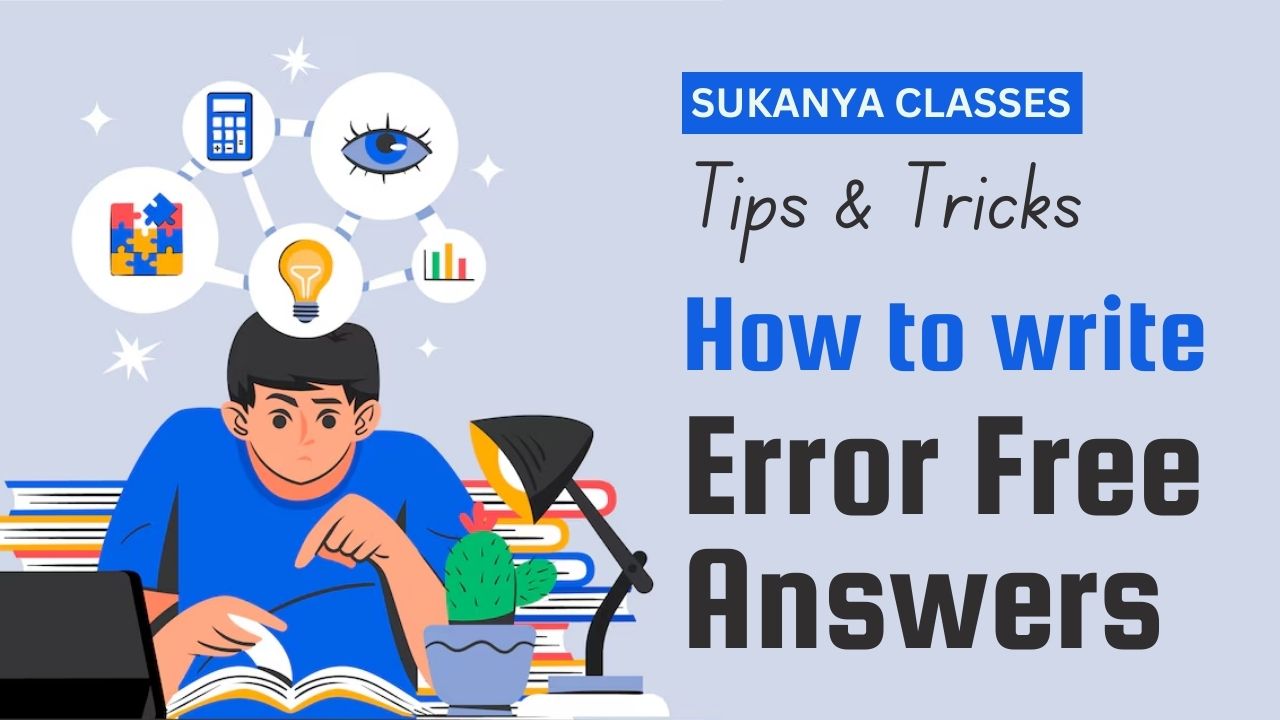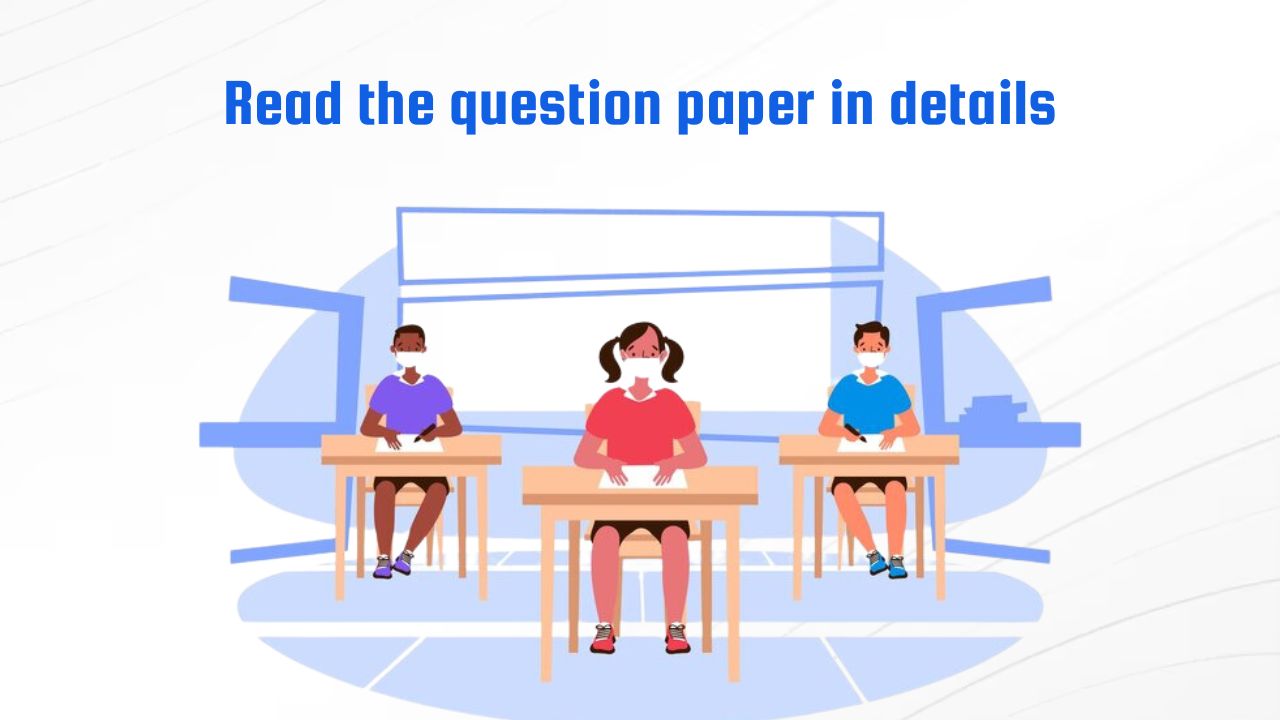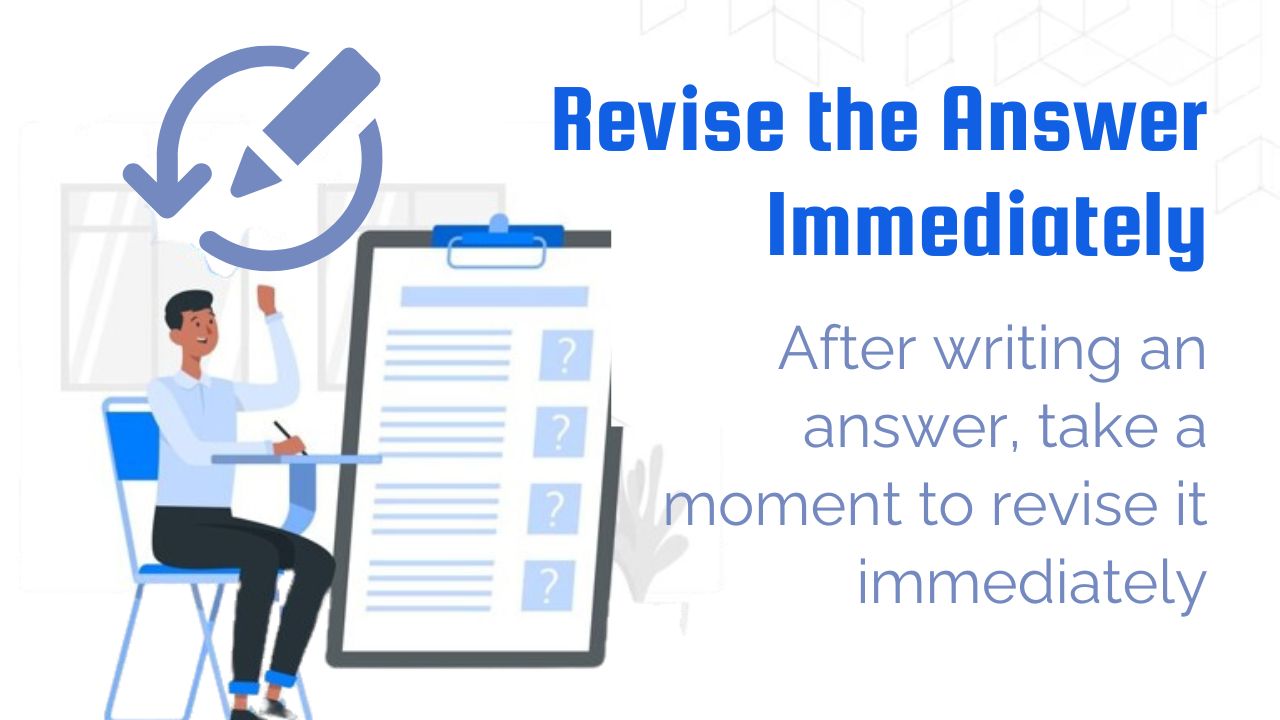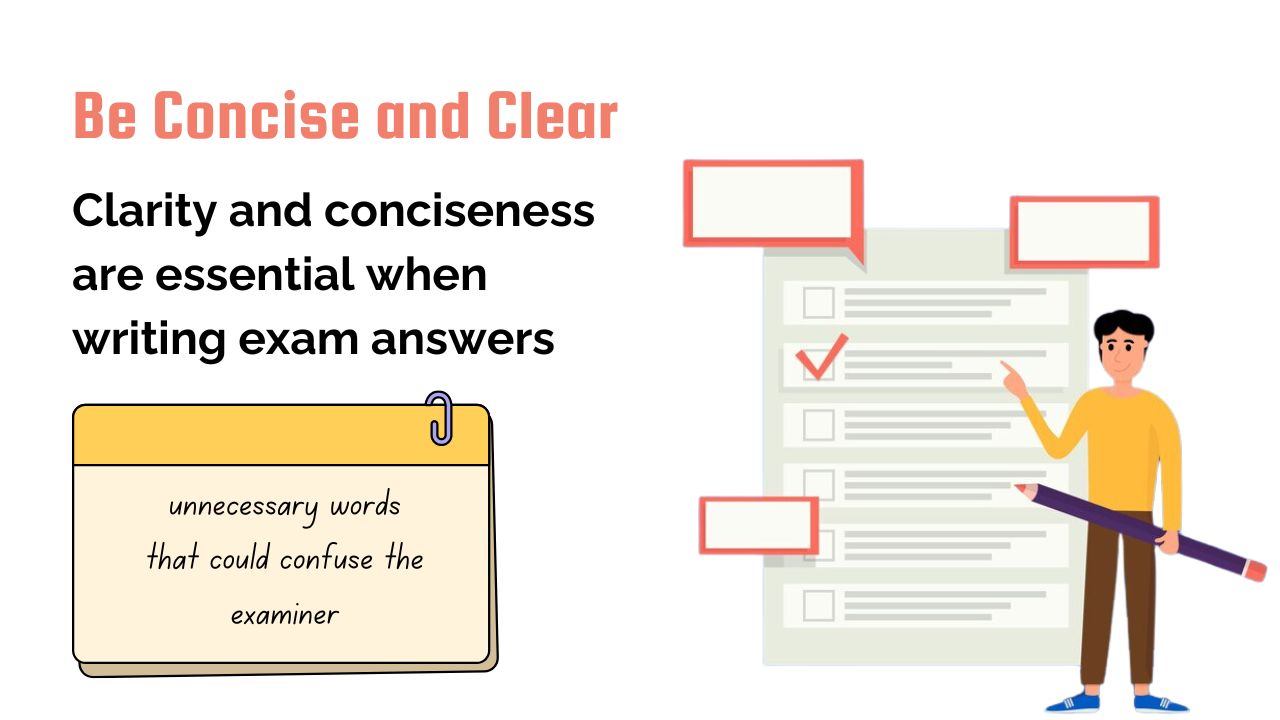The Secrets of Writing Error Free Flawless Exam Answers


Tips for Writing Error-Free Answers in Exams
As students, exams are often a source of stress and anxiety. However, one way to alleviate some of this stress is by being well-prepared and knowing how to write error-free answers. In this blog, we will explore some tips that can help you write flawless answers in your exams.
Read the Question Paper in Detail

Before diving into answering the questions, take a few minutes to thoroughly read the question paper. Understanding the instructions and the nature of the questions is essential for providing accurate and relevant answers. By doing so, you can avoid misinterpreting the questions and ensure that your answers are on point.
Check the Marks Allotted for Each Question

Before you start writing, it's crucial to check the marks allotted for each question. This will help you allocate your time and effort effectively. For instance, if a question carries more marks, you should allocate more time and attention to it. Understanding the weightage of each question can guide your strategy for answering them.
Revise the Answer Immediately

After writing an answer, take a moment to revise it immediately. Correct any grammatical errors, spelling mistakes, or unclear sentences. It's important not to underestimate the impact of this step. Revising your answer right away ensures that the information is fresh in your mind and allows you to make necessary corrections promptly.
Write Answers in Point Format

When writing your answers, consider presenting them in a point format. This can be likened to the index or contents of a book, where the main topics are outlined for easy reference. Presenting your answer in points can help the examiner quickly grasp the key points you are conveying. Furthermore, it can make your answers appear organized and structured, leading to a clearer understanding for the examiner.
Use Examples and Illustrations

Incorporating relevant examples and illustrations into your answers can enhance their quality. Examples not only demonstrate your understanding of the subject matter but also make your answers more engaging and memorable. Whether it's a real-life scenario, a case study, or a historical event, providing examples can enrich your answers and make them more impactful.
Be Concise and Clear

Clarity and conciseness are essential when writing exam answers. Avoid using overly complex language or unnecessary words that could confuse the examiner. Instead, focus on presenting your ideas in a clear and straightforward manner. Remember, the goal is to effectively communicate your understanding of the subject matter, and clarity is key to achieving this.
Stay Calm and Focused

During exams, maintaining a calm and focused mindset is crucial. Anxiety and distractions can lead to careless errors in your answers. Practice mindfulness techniques such as deep breathing or positive affirmations to stay calm and composed. Additionally, focus solely on the question at hand, avoiding irrelevant information that may detract from the quality of your answers.
Time Management

Effective time management is vital when writing exam answers. Prioritize the questions based on their marks and allocate time accordingly. If a question is time-consuming, consider revisiting it after answering the rest to ensure you can complete the entire paper on time. Avoid spending too much time on a single question, as it may lead to rushed and error-prone responses to other questions.
Seek Clarification if Needed

If a question seems unclear or ambiguous, don't hesitate to seek clarification from the invigilator. It's crucial to fully comprehend the requirements of the question to provide accurate and relevant answers. Seeking clarification demonstrates your commitment to understanding the question and can help ensure that your response aligns with the examiner's expectations.
Error-free writing refers to the process of composing text without grammatical errors, spelling mistakes, or unclear sentences. It involves ensuring that the information presented is accurate, coherent, and effectively communicates the intended message.
To write error-free sentences, it's essential to pay attention to grammar, spelling, and clarity. Proofreading and revising immediately after writing can help correct any errors and ensure that sentences are clear and coherent.
Writing English error-free involves practicing clarity, conciseness, and correct grammar. Employing techniques like proofreading, using grammar checkers, and seeking feedback from others can help improve writing quality and reduce errors.
Mistakes can be avoided when writing an exam by thoroughly reading the question paper, allocating time effectively, and revising answers immediately. Additionally, staying calm, focused, and seeking clarification when needed can help prevent errors.
To avoid making silly mistakes in exams, it's crucial to prioritize questions, manage time effectively, and stay focused. Practicing mindfulness techniques and double-checking answers can also help reduce the likelihood of careless errors.
Confusion during exams can be minimized by understanding the instructions, seeking clarification when needed, and focusing solely on the task at hand. Prioritizing questions, practicing time management, and avoiding distractions can also help alleviate confusion.


















0 comments